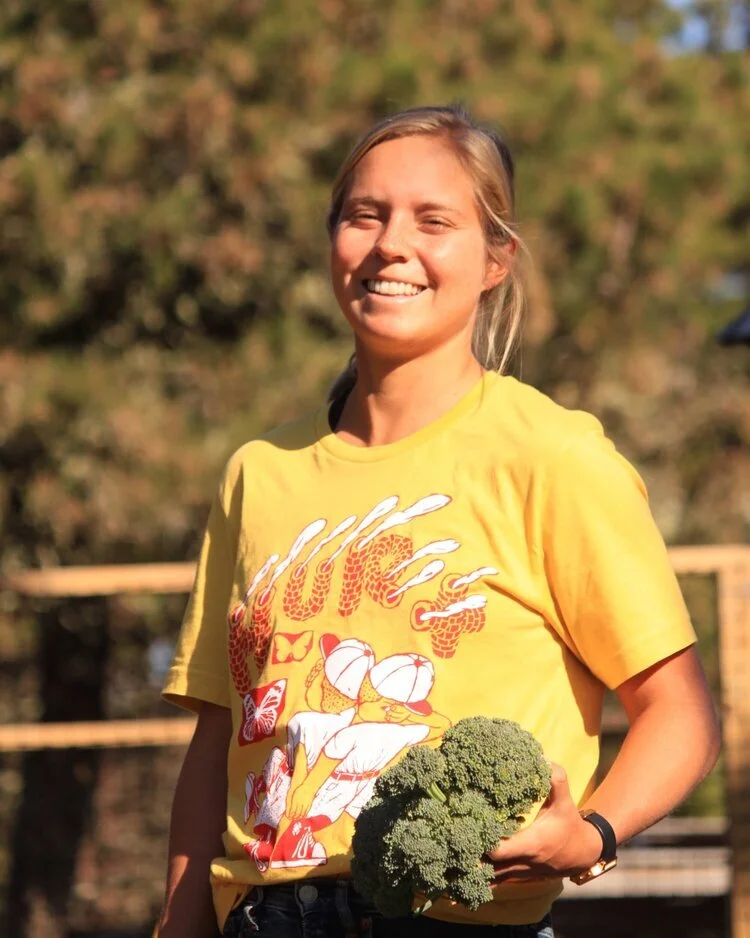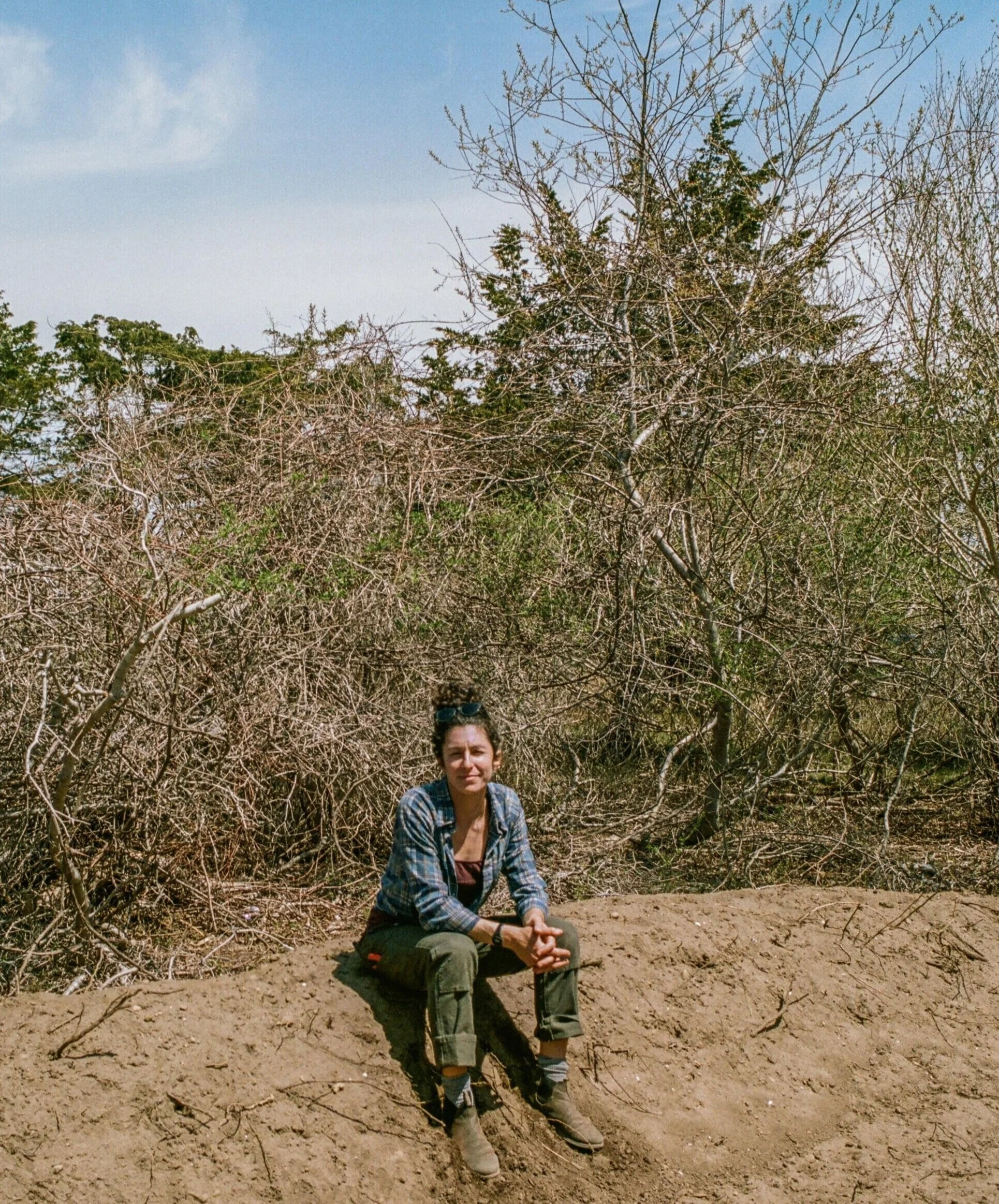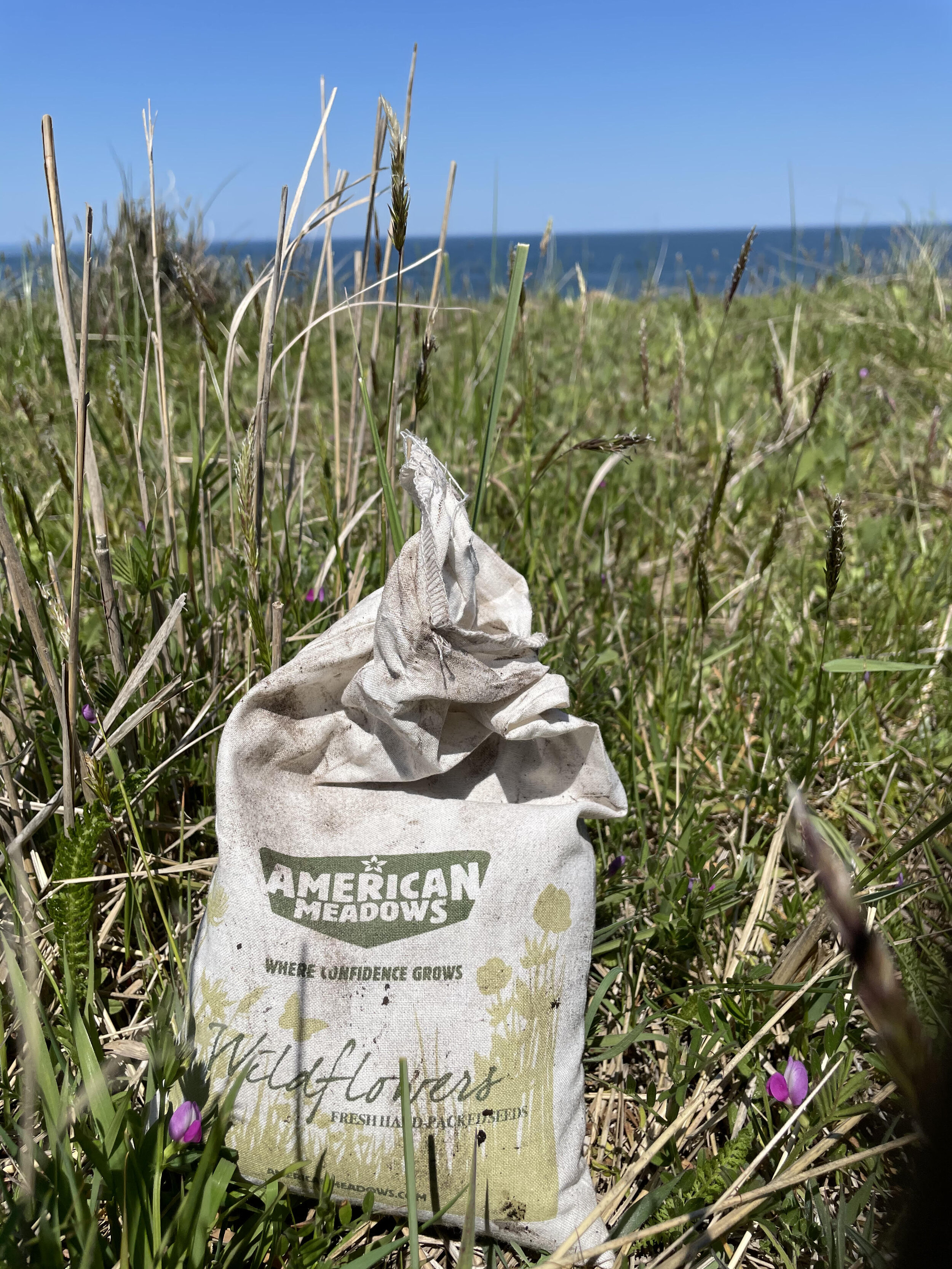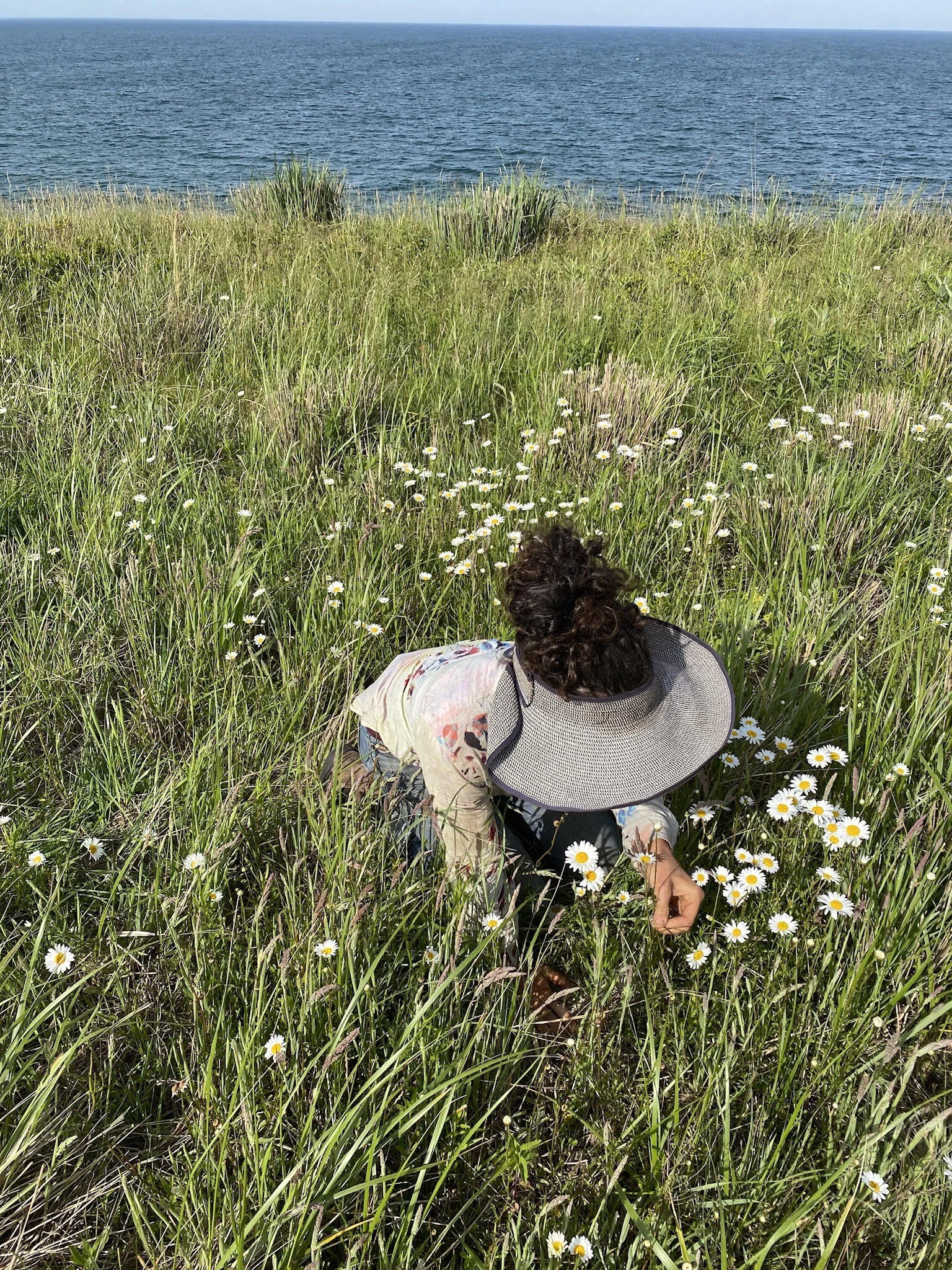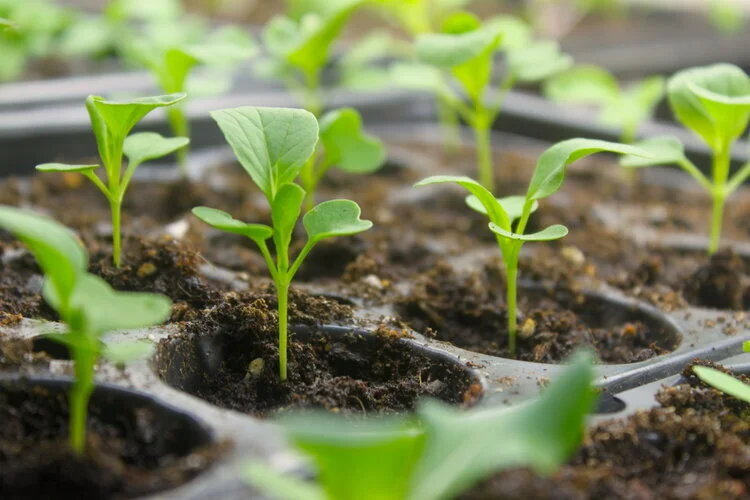Stories From Ashore: Low-Maintenance Meadows and Vegetable Gardens Are Gaining Momentum as Part of Nantucket's Resilient Future
By Morgan Raith
Nantucket's landscaping industry is experiencing an ecological and edible renaissance. Awareness around the island's delicate ecosystems has been gaining for some time now, and the COVID-19 pandemic has sparked alternative approaches to just about everything, gardening included.
Owner and operator of Island Harvest Vegetable Gardens, Luci Imbach. (Photo courtesy Luci Imbach)
"You couldn't really go to the grocery store without feeling like you were risking your life for a couple months there. I think that was intense for people and changed the way they look at the food system," said Luci Imbach, owner and operator of Island Harvest Vegetable Gardens, a vegetable garden installation and maintenance company she started this year.
Luci isn't the only gardening professional offering up alternatives to well-manicured lawns and hydrangea shrubs. Leigh Marr, operator of Artemisia Gardening, an extension of Wilder Design Studio, is turning backyards into wildflower meadows.
Many of Nantucket's gardens look the way they do because of customer perception and demand. Island landscapers want to give their clients exactly what they ask for, because that's what good business operators do. That said, homeowners might not know there are native and sustainable alternatives to exotic and introduced species.
Residential landscapes aren't usually built for the purpose of feeding people, feeding wildlife, or contributing to ecological richness. Gardens are often designed to be functional and beautiful backdrops for play and entertainment. That doesn't have to change completely, but part of Nantucket's resilient future will involve adjustments in the way we cultivate our landscapes and use resources. Large green lawns could be converted to micro-farms or wild meadows, which would provide food for humans, birds and beneficial insects.
Native plants require little to no fertilizer or added water once established, and they serve as a scaffolding from which entire ecosystems thrive. Unlike a typical backyard landscape, native plant communities function incredibly well without any assistance from humans whatsoever. In the face of a rapidly changing climate and growing disturbances from human development, preserving and restoring native plant communities will, over time, increase biodiversity, reduce carbon emissions and decrease pollution into Nantucket's waterways.
Leigh Marr, operator of Artemisia Gardening. (Photo Courtesy Holly Rae Estrow)
"We need to garden in a way that the landscape around us is impacted in a beneficial way," said Leigh. Not only do the landscapes Leigh cultivates look different, but they behave much differently as well. As far as maintenance goes, Leigh lets the landscape do a lot of the work. In the fall, natural mulch accumulates in the form of dead and fallen leaves. Instead of raking up the leaves and debris, Leigh lets the detritus accumulate, decompose and replenish the soil's biological network. Dead stalks and seed heads get to stay too. Dead plant material provides structural winter interest in the off-season, and leftover seed pods and flower heads provide food for birds and insects.
Leigh derives her philosophy of ecological gardening from her background in naturopathic medicine. She says over-the-counter painkillers and synthetic fertilizers work similarly. They are both quick fixes to underlying issues with no real long-term positive impact. "If a plant isn't doing well, it might be because it isn't supposed to be there," said Leigh. "I would encourage people to change their programming of what gardening is and what it can be."
Luci takes a similar approach to her vegetable gardens, having studied sustainable agriculture at the University of Vermont. "I am super into soil. I am very much a geeky gardener." Instead of using conventional fertilizers, she treats her client's soils with a cocktail of beneficial fungi, bacteria, and essential minerals. Luci started her company because she loves dirt, loves growing food, and wants to share that passion with homeowners across Nantucket.
Photos courtesy of Holly Rae Estrow (1 and 2) and Luci Imbach (3).
Edible gardens do require added water and nutrients, but even a small veggie patch can help reduce dependency on store-bought produce. If not grown locally, produce can travel thousands of carbon-intensive miles from farm to plate. Nantucket is no stranger to the importance of local food systems. Many of Nantucket's backyards and patios are already teeming with vegetables in the summer months. A quick drive down Hummock Pond Road will reveal an impressive network of small farms that help feed our community and a world-class restaurant scene.
Growing vegetables at home can be an intimidating endeavor. "There's too much information out there, and not all of it is based on science. It's super easy to fail, which some people don't do well with," said Luci, who is focused on closing that knowledge gap and helping people have productive and healthy gardens. "My clients all have that gravitation towards growing food. They just need a little help getting there." She also wants people to know that they don't need a huge space to garden. "At any scale, it's worth it."
When planning a garden this season or next, consider asking your landscaper about native plant choices, slow-release fertilizers and soil-building techniques for flowering plants and vegetables. Nantucket’s landscapers will be happy to work with you. Additionally, in an effort to improve the health of Nantucket's native pollinators, a pollinator-friendly garden guide and education program is now available through Nantucket Land Council.



